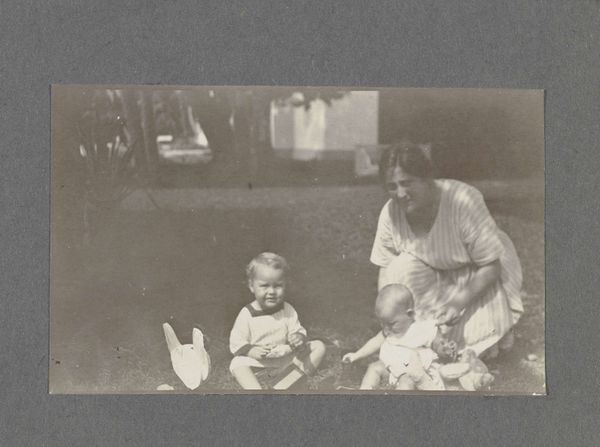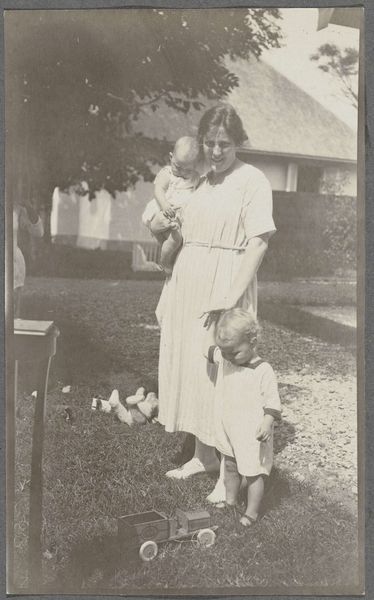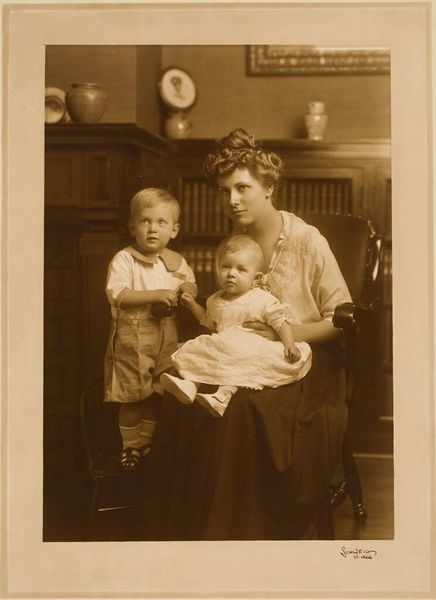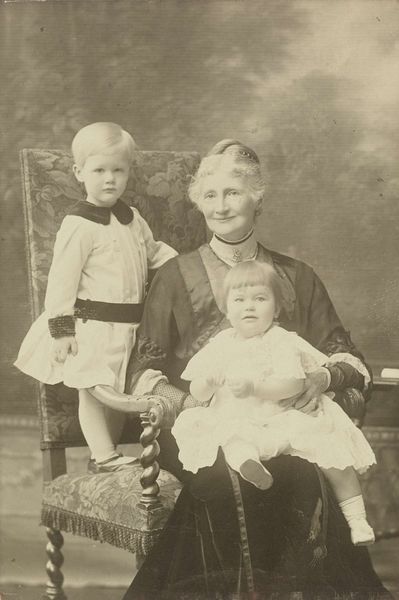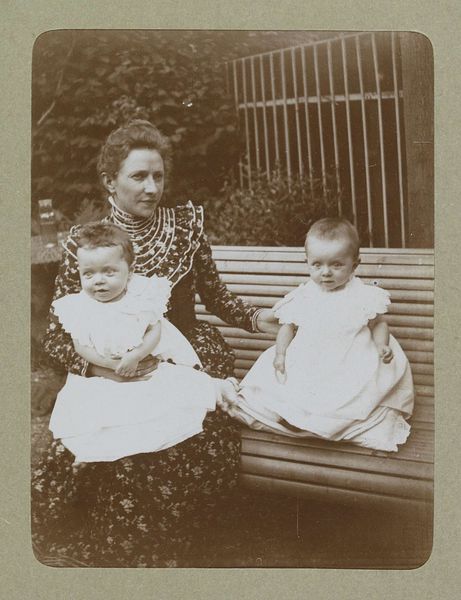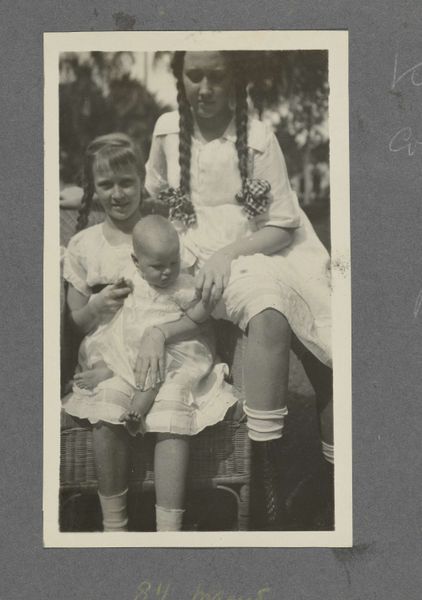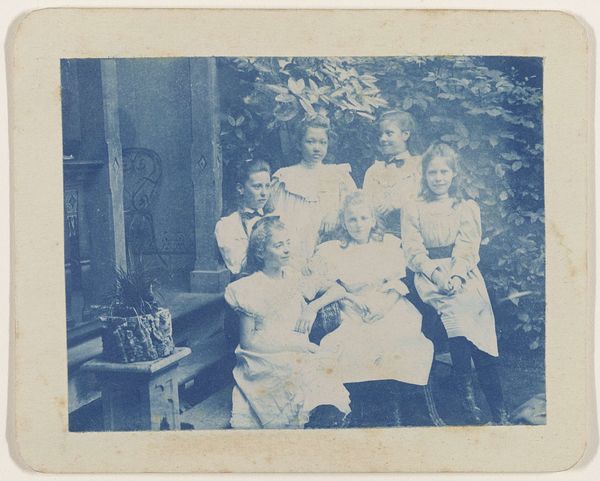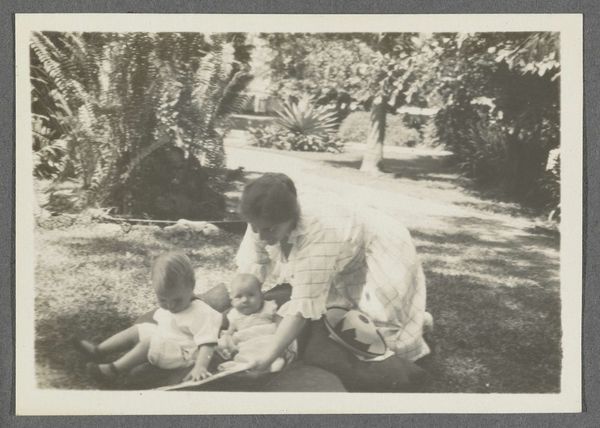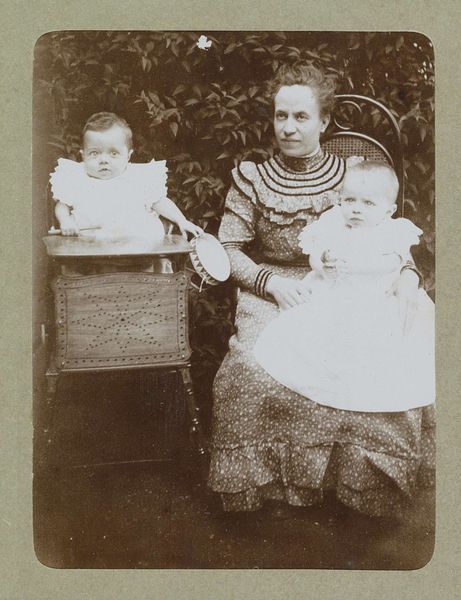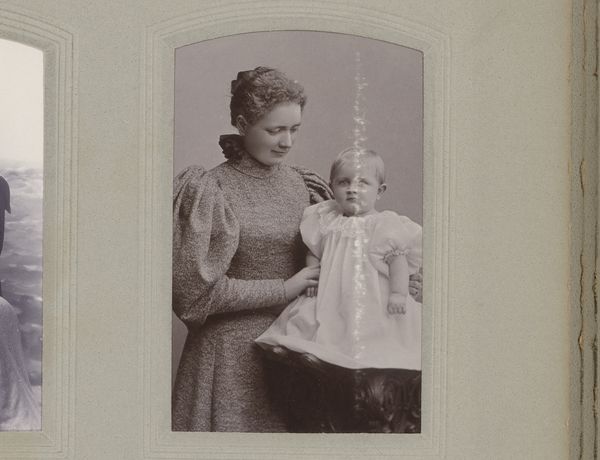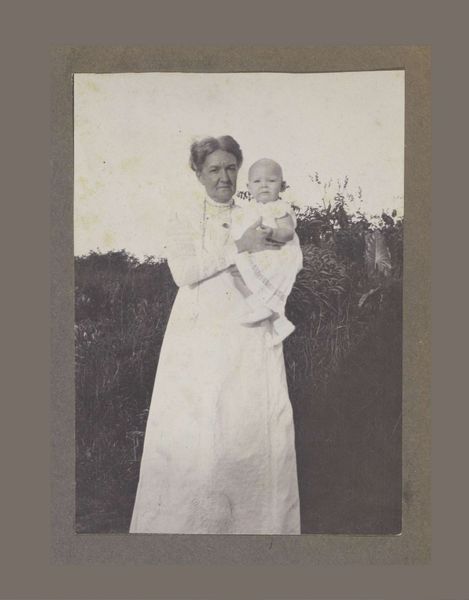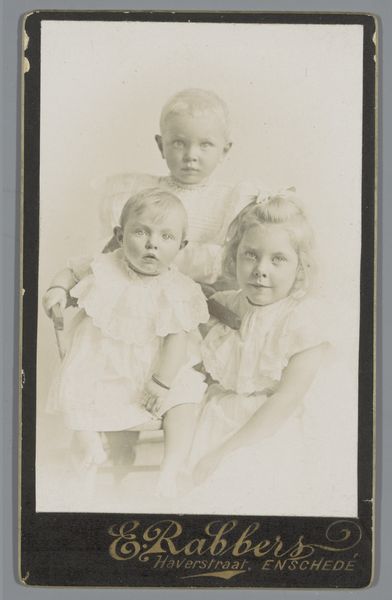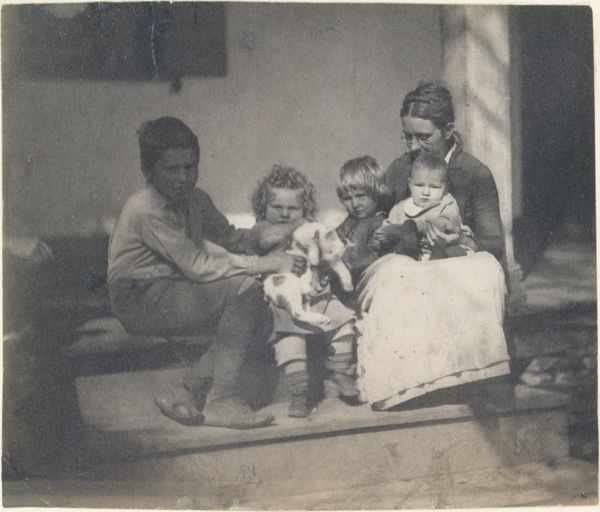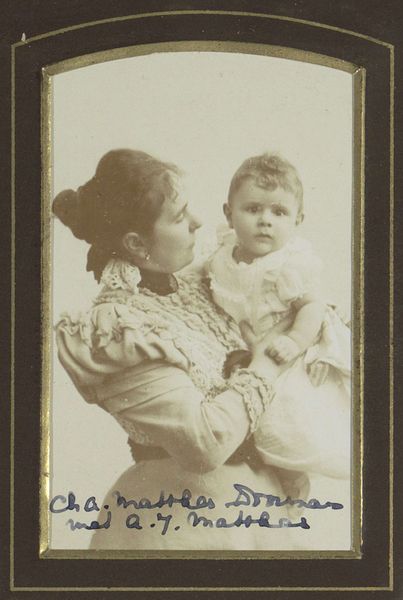
Tine Kleiterp-Vermeulen en haar kinderen Klaas en Tiny op een grasveld in Madje op Celebes 1922 - 1923
0:00
0:00
photography
#
portrait
#
mother
#
photography
Dimensions: height 65 mm, width 103 mm
Copyright: Rijks Museum: Open Domain
Curator: This evocative photograph, taken sometime between 1922 and 1923, presents Tine Kleiterp-Vermeulen with her children, Klaas and Tiny, in Madje, Celebes. It's a window into a world long past. Editor: It feels intimate, doesn’t it? Almost like a stolen moment rather than a posed portrait. The mother’s dress, the children's clothes—they all suggest a story waiting to be unpacked about colonial life, privilege, and familial bonds in that period. Curator: The act of capturing this domestic scene, seemingly ordinary, is interesting, isn't it? Notice the details: the almost ghostly rabbit toy, the square object that little Klaas holds... perhaps symbolic reminders of home amidst a life lived far away. The symbolic weight of everyday items... Editor: Indeed. And think about the colonial context. The seemingly simple act of taking a family photograph becomes an act laden with power dynamics. It visualizes the presence of a colonizing family on Celebes, implicitly underscoring notions of visibility and belonging within a constructed landscape. Where were the local photographers documenting indigenous life? What perspective is missing here? Curator: That absence you speak of shapes our reading of the photograph, without a doubt. In terms of cultural memory, these photographic practices reflect the colonizers and their experience as they want it remembered, even to themselves, overshadowing or displacing local voices. I believe in these private, tender moments are also markers of a bigger and shared identity, not limited to colonial stories, perhaps the shared experience of motherhood is being subtly underscored through its symbol of eternal love and protection. Editor: While I acknowledge that the image presents a maternal scene, the broader context insists we remain critical. Considering that perspective, it invites viewers to examine our own complicity as present-day viewers inheriting these visual archives. Curator: I understand your point about questioning inherent biases, the photograph retains the human aspect of what survives. I am mostly touched by the image, with the emotional content that transcends political and cultural landscapes; regardless of the socio-political implications of what it represented at that moment, it invites us to share an eternal sense of belonging with family, and a home in ourselves, especially in times of estrangement. Editor: Yes, perhaps this is a space for reflecting on the complex, sometimes contradictory, layers of meaning contained within such seemingly simple images.
Comments
No comments
Be the first to comment and join the conversation on the ultimate creative platform.
